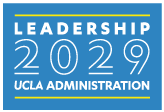Employee Retention Series: Part 1
Management Topic: Developing Represented Staff
Dear Colleagues,
Many of you may have recently heard of the Great Resignation and its effects on organizations and the workforce. Now is a critical time for departments to look inward at how they can best retain current team members and their talents, skills, knowledge and abilities. We do this to ensure that our team members are engaged and that we are leading and managing in accordance with UCLA’s values.
A key component of employee engagement includes professional growth. However, our Monthly Management Tips (MMT) team has heard repeatedly that managers sometimes feel their hands are tied when it comes to developing represented staff for fear of violating the collective bargaining agreement (CBA) that governs terms and conditions of employment. It is important for management to ensure that their actions align with the applicable CBA for their employees, however, there is much that can be done to grow and develop your staff while still complying with the CBA! This month’s MMT is here to help you navigate and empower you with the knowledge of where and who to go to when unsure.
Managing a Large Workforce
Frontline supervisors interact with represented staff more than any other level of supervisor or manager. They also tend to have the highest ratio of direct reports, decreasing the amount of time they have to provide one-on-one support, guidance and development. As you move through this process, remember:
- Don’t underestimate the importance of checking in with your team members, even if five minutes is all you have. Creating professional development plans require more time upfront, but once implemented, time commitments decrease for the supervisor.
- Don’t be afraid to ask questions: there are so many resources already created and individuals ready to assist you. Reach out when in doubt. (Resources and applicable contacts will be discussed in more depth below.)
- It’s important to create and support an environment where lifelong learning is encouraged. This is important for the employee, department and UCLA!
- Remember, you are not alone. You are a team member’s first point of contact if they have questions regarding development. However, encourage staff to find a mentor at UCLA who can further assist them. Mentoring resources can be reviewed on the Learning & Organizational Development webpage.
Developing Represented Staff
- Determine what skills need developing:
- Meet with the employee and learn more about their interests or desires to expand their knowledge and skills in specific topics. Allow them to lead this process.
- Respect and encourage staff’s current skills, while taking time to develop skills presenting growth opportunities.
- Remember that development can be many things, including: developing skills that allow staff to move laterally to new career fields, upwards to the next step in their career, or further specialized in their current one.
- Once areas of development have been identified, begin setting goals. Goals should be SMART (specific, measurable, achievable, relevant, and time-bound).
- Be sure to refer back to December’s MMT for further tips on Goal Setting & Professional Development.
- Give feedback after recruitment interviews. If internal staff are interviewing for roles within your organization or UCLA, but aren’t being selected, follow up with them to explain what they can work on or areas to gain more experience to make them a more qualified candidate next time. Staff don’t know what they don’t know and providing feedback and insight is important to ensure staff don’t lose their motivation when it’s unclear why they aren’t selected.
Creating Stretch Assignments
- Managers should be familiar with what is already written within an employee’s job description, as well as guidelines they need to follow based on the employee’s CBA.
- One of the main factors that should be considered is how a stretch assignment will affect an employee’s current job duties. If your employee already has a heavy workload, some work will need to be shifted to ensure new tasks do not overwhelm them. Review their workload and discuss if there are tasks that can be given to another team member during this period. If work will be passed on to others, remember to communicate this carefully.
- Consider in what ways these new skills could help the department reach its goals and/or improve existing processes. Prioritize these where possible.
- Will duties assigned within the stretch assignment be within the employee’s current job classification? Be sure to review the class specifications. Depending on how much their current job duties will change and if the new duties are at a higher level, this employee’s salary may need to be reviewed. Appropriate actions can include stipends¹ (when an employee is temporarily assigned responsibilities of a higher level position or other significant duties not part of the employee's regular position), equity increases (changes in assigned functions or work tasks that increase the scope and complexity of a position, but do not elevate the position to a higher classification), reclassifications (when duties and responsibilities have undergone significant changes warranting review to ensure a position is appropriately classified and therefore, appropriately compensated) and temporary promotions (specific to the K4 CBA).
- Classification Specifications describe the general functions, duties and responsibilities of a given position. A complete list of class specifications for UCLA can be found on the UCLA Compensation & Classification website. It can be helpful to review your current employee’s classification, as well as the classification above to determine differences and get a general idea if you may be assigning work out of scope of the current classification.
- Please make sure to read the specific CBA for your employees! Most CBAs include specific language regarding Out of Classification assignments, the appropriate duration, and at what percentage before a pay increase is warranted and how much that percentage should be. If ever unsure, please reach out to your compensation consultant.
- Consider whether there are staff in your department already proficient in the skills your employee desires to learn and who could serve as a mentor to this employee.
- Remember that all staff should be developed and provided time and resources. This does not necessarily need to be the same for each employee, because each employee’s development plan will be unique to them, but opportunities should be made available. If participation in programs or courses must be limited to ensure the operation can still function while a team member is away, find other opportunities for growth and be honest with staff regarding why not all requests can be approved at this time. The department should be fair and equitable when providing growth opportunities, and establish processes to review and approve requests when there is a limit on how many can be accommodated. This can be based on when the request was submitted, seniority, or available budget, for example.
¹Depending on the CBA, stipends may or may not be permitted. Make sure to review the CBA or reach out to Employee & Labor Relations before providing stipends. For example, lecturers who have a 100% appointment are not permitted to work additional hours or receive an additional appointment.
Whom to Contact if You Have Questions
- If you have questions regarding any changes to the job description and/or whether compensation changes are appropriate, contact your compensation consultant.
- For guidance on recommendations regarding available programs and training to develop your team member’s skills, as well as assistance with designing stretch assignments, contact CHR’s Learning & Organizational Development team or email learning@chr.ucla.edu.
Resources and Programs for Staff

- Encourage staff to set up a profile with “My UC Career”. The “My UC Career” Portal is available to all UC staff seeking to advance their career. Six self-paced modules help users discover their internal UC career mobility options and identify how they can achieve their career goals within the UC. Staff can view all UC opportunities by job type, location, or career level and create multiple alerts for new postings that are most interesting.
- The Staff Enrichment Program is available to represented as well as policy-covered staff. View a list of eligible titles.
- Encourage staff to participate in courses within the Timeless Skills Series, a series of virtual workshops compiled to address competencies and skills relevant to success at any time and in any role, team, or organization.
Follow Up
- After a professional development plan has been implemented:
- Set up short- and long-term goals.
- Assign milestones in order to track progress.
- Ensure your employee has dedicated time to work on establishing these new skills.
- Hold regular check-ins and solicit feedback.
- Give staff an opportunity to shine! Encourage their ideas and suggestions and celebrate them. Don’t just develop their skills, develop their confidence.
- For more information on coaching others, please visit the Coaching Resources page.
Helpful Tools to Learn More About This Topic:
- Register for the Managing a Represented Workforce course within LMS
- Register for the upcoming workshop on Delegation Skills for Supervisors via LMS (delegating new work is a great opportunity for staff to learn new skills)
- Complete the UC Engaging and Developing Employees course (35 minutes)
- Complete the UC Coaching for Performance and Development course (35 minutes)
Interested in reviewing prior months’ topics? Visit our Monthly Management Tips website.
Stay Safe!

Do you have feedback, questions or a suggested topic you would like to learn more about? Please email: managementtips@ucla.edu.
Want to receive Monthly Management Tips emails? Sign up for our list!

